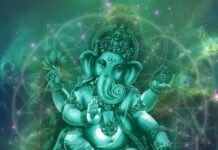Depression has become widespread in recent years, more so during this pandemic when people must spend more time alone, limited in movement, with uncertainty about the future. It is afflicting young and old, rich and poor, educated and uneducated alike.
By Dr David Frawley
What is the cause of depression and how can we effectively address it? There are many explanations. However, let us look beyond complicated theories or chemical analysis. To put it simply, the cause of depression is excess stimulation and an externalized mind. The more we depend upon external stimulation to motivate us, the more depressed we will likely become over time. There are several reasons for this.
First, whenever any stimulation we become used to is reduced or withdrawn we are likely to become depressed, or feel a withdrawal syndrome, as we become dependent on the stimulation to energize our nervous system and mind. Stimulation always causes some degree of addiction. This includes media stimulation but also social activity of various types.
Second, over time we are likely to become bored or depressed with any type of stimulation, as repetition causes it to lose its novelty. The threshold for any stimulation to affect us goes higher as we regularly experience it. That is why we need ever new forms of stimulation.
Media Stimulation and Drug-based Medicine
In the high tech world, we are subject to more stimulation and entertainment than any previous era. Many people are wired up the entire day with music, videos, social media, or the Internet – shutting themselves off from the rest of life and other people. We don’t know how to be alone, be silent, be in nature, or have direct relationships with anyone.
Along with extensive sensory stimulation many of us are taking recreational or medicinal drugs that have addictive and depleting side effects. There are major increases in the amount of opiates that people are taking for pain relief, and widespread opiate drug addictions, for which there are more addictive forms. Depression can be connected to addictions of various types, from sensory addictions to substance addictions. Depression is rooted our life-style of looking outwardly for happiness. We can easily feel depressed at the disturbed state of the world today, and the new dangers of the coronavirus era.
Depression and Brain Chemistry
Medical science states that depression is a product of wrong chemistry in our brains, which can be treated with drugs as it as a chemical problem. We have a new array of anti-depression medications as the proposed answer. Yet with all the anti-depressive drugs being taken, we seem to be getting more depressed. Some anti-depression drugs have as side effects making us more depressed. While such anti-depression drugs may be necessary in certain conditions, there are other helpful alternatives.
Drug-based medicine suggests that we may not be personally responsible for such brain chemistry imbalances. It proposes that we may be victims of our brain chemistry that depends upon factors beyond our control, starting with genetics. Believing this assumption to be true can reduce our ability to control or improve our own health and wellbeing. If we are the victims of brain chemistry, what responsibility in life do we really have?
Depression and Behavioral Issues
Most depression is behavioral based. Our wrong life-styles of excessive activity, over stimulation and dissociation from the world of nature leave us depleted. Yoga teaches us that the quality of rajas or excessive aggression and stimulation leads to the quality of tamas or dullness, inertia and depression as we wear ourselves out, burn ourselves up, or just become overly sensitive, restless and stressed.
In our individualistic society, we often end up alone, as family and community are subordinated to individual achievements. This makes us more dependent upon media stimulation to fill the emptiness of our lives. Loneliness and depression often go together, heightened by the pandemic era.
Depression is nothing but low energy in the mind or at a psychological level. Just as we all have periods of low physical energy as a consequence of excessive activity, we also have periods of low mental energy as a consequences of too much mental or emotional work or stimulation. Just as physical low energy rests upon lack of exercise and poor nutrition, so psychological low energy rests upon lack of mental exercise and poor nutrition for the mind. In the pandemic era our physical and mental energy tends to get reduced.
How many of us exercise our minds with concentration? Have you examined your mental nutrition that you take in through your senses? We will let people into our own minds through the media that we would never let into our homes. We watch programs full of violence, destruction and negative emotions.
Depression indicates weak psychological and physical immunity. Some who claim to be suffering from depression have actually not suffered much outwardly in life in terms of disease or deprivation, but are reacting to emotional issues. The more we think about our depression, which is to give it more attention, the worse it gets. Psychological immunity has also been reduced during this pandemic.
What Depression Can Teach Us?
In treating depression, we should not target depression as the enemy, like a pathogen to be destroyed, something coming from the outside. We must understand its cause within us, and what its message is about how we live and think. We should try to understand what our depression is teaching us about our situation in life.
Depression like pain may be the symptom of a deeper problem. Depression may be telling us that there is something unfulfilling about our lives – that we may need to fundamentally change who we are or how we function in the world. It may be telling us that we are not using our time wisely and need to change our daily routine. Depression may be spiritually based as without any meditation practice or deeper values, the external world will eventually leave us feeling empty and without any value of our own.
Behavioral and Attitude Approaches to Counter Depression
How should we deal with depression? It can be addressed by natural healing. Anything lacking in prana or the life force cannot in the long run truly raise our spirits. We must learn to withdraw from external stimulation and develop our own internal creativity, motivation and discipline. Depression may be a sign that we need to detach and move on to a new level of awareness.
To get beyond depression we must take karmic responsibility for who we are. We should pursue a life of higher awareness rather than mere personal enjoyment and outer success. We should recognize that our state of mind is our rooted in our own values, actions and motivations. We must stop blaming our bodies, our parents, or even society for who we are. We must empower our inner being. Such behavioral changes cannot happen overnight but we can introduce them gradually.
Simple things we can do for depression in Yoga and Ayurveda
Use stimulating aromas or incense like champak, frangipani, camphor, eucalyptus, mint, sage or tulsi, or take herbs like tulsi, brahmi or calamus to clear the mind. Use nasya oils to clear our sinuses or a neti pot to cleanse them in order to bring more prana into the head. Practice pranayama to bring deeper energy to the brain. As long as our sinuses and lungs are open and our breath is deep and full, it is hard to fall into depression.
Chant mantras like Hreem, Shreem or Om Namah Shivaya, or whatever we most relate to, or repeat them silently to get our energy moving. Use Ayurvedic herbal teas like tulsi, calamus or brahmi to improve circulation to the brain, or natural calmative herbs like sandalwood oil to the head.
Go outdoors into nature, take a hike in the hills, go by the ocean, rivers, or lakes, go swimming, or practice asanas. We must move our bodies and our prana. Do inverted poses to draw the energy into the brain.
Learn to relate to life and the universe through the sky, the waters, the Earth and mountains, trees, flowers and herbs, and all creatures great and small. We must open up our mental horizons to the boundless space of consciousness. Only if we give the mind space within itself can it heal itself. For this, we must be willing to experience the emptiness within, which will eventually fill itself with awareness if we are receptive to it.
Perform service work for others who are in more difficult life situations than yourself. Try also removing the clutter from your room or your house to help remove the clutter from your mind that depression often involves.
Meditate regularly morning and evening, cultivating an awareness of your inner Self and universal consciousness.
Ayurvedic Views on Depression
In Ayurvedic terms, airy Vata dosha types can suffer depression born of debility and nervous exhaustion, though they may also have many ups and downs. They need good nutrition and regular meals, relaxation, sesame oil massage, tonic herbs like ashwagandha and bala, nervines like jatamamsi and calamus.
Watery Kapha dosha types can develop chronic heavy depression born of lack of movement, lethargy and overweight. They need more movement and action physically and mentally. They need stronger exercise, pranayama and svedana or steam therapies, and spicy herbs like ginger, cardamom, tulsi and cinnamon to promote digestion and circulation.
Fiery Pitta dosha types can get depressed when they fail to achieve their personal goals or when their efforts are blocked. Depression often goes along with anger. They need to cool off and calm down, cultivating forgiveness and compassion, with cooling herb like brahmi, jatamamsi, shankha pushpi, or manduka parni (bacopa), including Brahmi ghee.
Ulitmately, to move out of depression we need to affirm our own higher Self and not be overwhelmed by the outer world regardless of its complications.
It should be beneath your dignity as a Divine being and immortal consciousness to wallow in depression.
You true nature is Being-Consciousness-Bliss absolute beyond the body and mind, Satchidananda!
This article first appeared in www.vedanet.com and it belongs to them.








